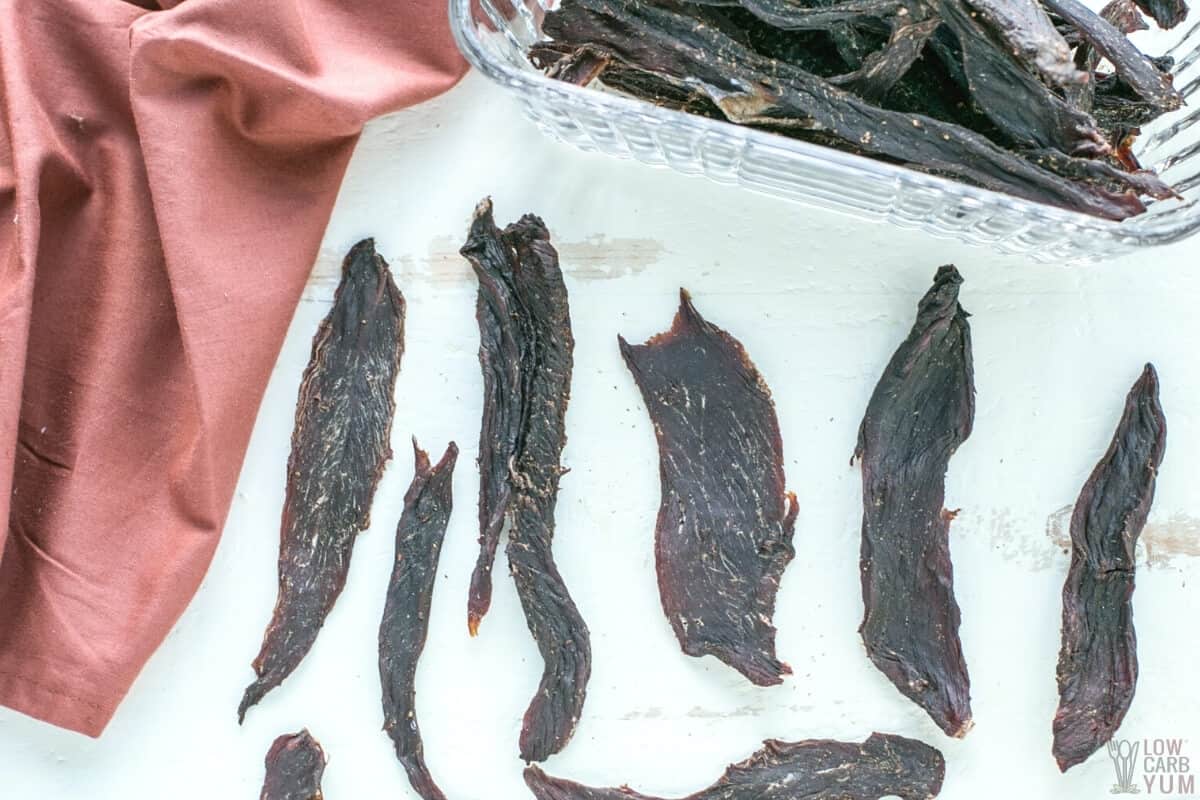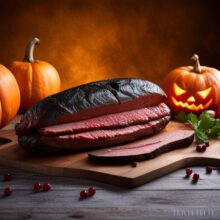Venison Jerky Cure

Whether you’re an avid hunter or just enjoy a good snack, jerky is a perfect food for the outdoors. Besides being a tasty snack, jerky can also help preserve your meat when you’re on the hunt.
Using a cure can make a big difference in how long your jerky lasts. Curing salt, also known as sodium nitrate, is an effective way to inhibit the growth of bacteria.
What is a cure?
A venison jerky cure is a salt-based preservative that helps ward off bacteria, increase shelf life, and enhance the color and flavor of your jerky. It is not required by law, but it makes the jerky process safer and easier.
It is used in small amounts and inhibits bacterial growth during the lower temperatures of the drying process. It should be used in conjunction with oven drying at 160 degrees to ensure your jerky stays safe.
Jerky cures are available at grocery stores and sporting goods stores. They typically contain sodium chloride, sodium nitrite, and sometimes food coloring.
If you’re looking for a cheaper option, try natural curing agents like celery juice powder or celery juice. These ingredients are derived from celery and can be purchased online or at specialty stores. But they are harder to work with and can be more expensive than traditional jerky cures. You may also find it more difficult to measure the nitrate levels in these products.
How do I use a cure?
Venison jerky is a popular way to preserve venison, and it’s easy to make at home. But to make sure you’re not exposing yourself to harmful bacteria, you need to cure your venison first.
The most common way to cure meat is with curing salt, also known as pink salt or sodium nitrite. It’s a special type of salt that works to destroy dangerous bacteria, including botulism and salmonella.
Curing salt prevents bacterial growth by drawing water from the surface of the meat and killing bacteria. It also improves the color of cured meat, making it more attractive than raw or cooked meat.
Adding curing salt to your jerky also increases its shelf life. Jerky that has a nitrite-based curing agent can stay fresh for up to two weeks at room temperature, if stored properly.
What are the benefits of using a cure?
Using a curing salt for venison jerky can help extend the shelf life of the meat, which is important in a jerky-making process that involves smoking or drying at low temperatures. Curing also prevents bacteria from causing problems, especially when the jerky is exposed to low cooking temperatures and little oxygen.
It also helps to preserve the color of the jerky. During the curing process, a mix of salts, sugars and nitrates will form a protective coating on the meat to help it retain its flavor while preventing spoilage.
The cure can be interchanged with a commercial jerky seasoning mix, or you can make your own by mixing the cure with the spices you use to season your jerky. Whether you choose to use a commercial or homemade cure, it’s important to give your jerky plenty of time to cure so that the salts, sugars and nitrates can work their magic.
How do I store my jerky?
Hundreds of years ago, the Quechua people of the Andes discovered that by pounding strips of meat, salting them and drying them in the sun, they could make jerky that would keep for months at a time. But now that we live in a modern world, where jerky is often available in grocery stores, it’s important to know how to store it properly so that it stays good for as long as possible.
The key to storing venison jerky is to keep the moisture content low. This means making sure that the meat is cut into strips that are less than one-quarter inch thick, and that it has a moisture content of 10 percent or lower.
If you’re not going to use the jerky for immediate consumption, it’s a good idea to put it in a container or bag that is vacuum sealed, as this will help keep it fresh and tasty for a long time. It should stay fresh for about a month or more at room temperature, but it’s best stored in the refrigerator for longer.
Related Articles
How to Prepare Venison For Jerky
Venison Jerky – Why Use a Dehydrator?
Popular Venison Jerky Seasonings
How to Make the Best Venison Jerky Recipe
Adjusting Venison Jerky Temperature
Read more great BBQ articles at Bob’s BBQ Secrets


